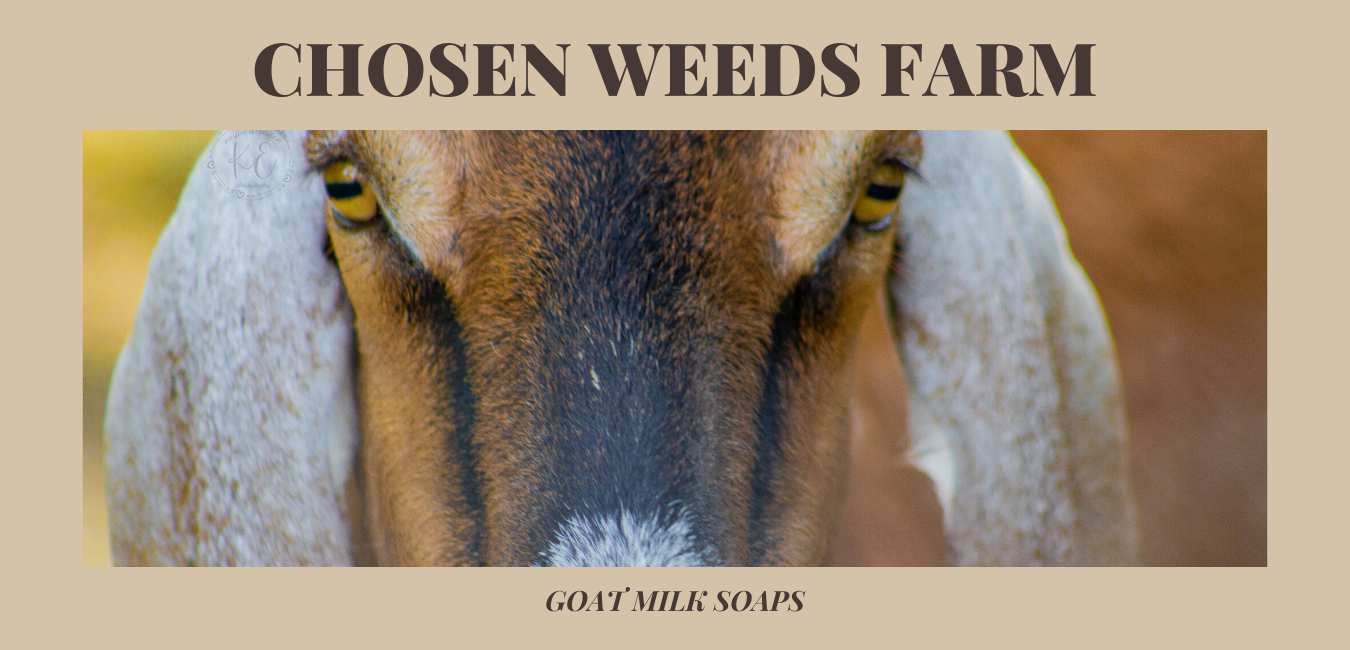Spring is officially here!! I can’t believe it. Things are already hopping, growing, and moving here are on the homestead.
The garden is planted and already producing. I noticed the first peppers, pumpkins, and tomatoes are popping out on Sunday and I have already made the first harvest of Swiss Chard. There are definitely advantages of living in the south. The summers may be unbearably hot, but I get to start the garden earlier.

One of our Australorp/Orpington cross hens was broody, something that they are not known for. We usually incubate our own eggs, but I decided to give her some fertilized eggs from another group of chickens. She was rewarded for her effort this week with four chicks. We are excited to see how she does with these four little ones (Update: As of this posting, sadly two of the chicks have died, but she is being a good mama to these two and it is so cute to see them following her around the yard).
Sunday morning, once the sun dried off the dew on the plants, I decided to get ahead of the insect and slug game. Last year the slugs and snails were horrible and many of our plants died. So with so many seedlings poking through the ground and the peppers and tomatoes planted, I decided to spray them a neem oil solution. This solution includes castile soap and Eucalyptus oil and will be sprayed once a week.

What is Neem Oil?
Neem oil is derivative from the neem tree (Azadirachta indica), an evergreen variety native to India. “Azadirachtin is the important ingredient in neem oil that can help prevent unwanted pests from destroying plants. While there are other ingredients in neem oil spray that show insecticidal properties, azadirachtin is responsible for 90 percent of the effect of neem oil insecticide [1].”
What are the Benefits of Neem Oil?
First of all, neem oil is a natural product that is safe and biodegradable. The “EPA modeling of potential residues of neem oil following terrestrial treatments indicated that residues declined rapidly between applications and following the final application [1].”
While neem oil deters and controls a number of destructive insect species, it is not harmful to beneficial bugs like butterflies and bees, and the National Pesticide Information Center reports that neem is practically non-toxic to birds and mammals [1].
How Often Do I Do an Application?
According to Mother Earth News, neem oil is best used preventatively [2]. Because of this I am starting early and spraying weekly to help stop/deter the life cycle of the bugs. “Neem products do not provide absolute insect control; however, frequent applications can reduce pest populations dramatically by repelling them and inhibiting their larval development, growth, fertility, mating and egg laying, and deterring feeding [1].”
Neem Oil Spray (1 gallon sprayer)
¼ oz cold-pressed neem oil/1 gallon of water
1 TBSP castile soap (used as an emulsifier)
10 drops Eucalyptus oil
Egg Shells on the Garden?
Yup, that is the white stuff you are seeing on the garden beds. This is an experiment I am trying after reading several articles about it working on deterring slugs and snails. Will it? We will have to see. At any rate, at least the egg shells don’t go to waste.

Spring is an exciting time, and I can’t wait to see what the rest of the year holds!
